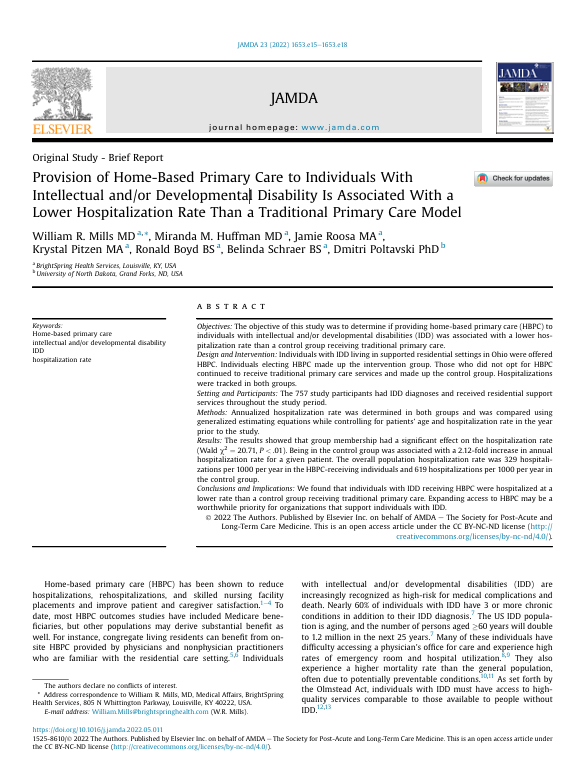Headline
A home-based primary care program reduced hospitalizations for adults with intellectual and developmental disabilities in Ohio.
Background
Home-based primary care may be beneficial for serving people with intellectual and developmental disabilities (IDD) who reside in community living settings and have difficulty accessing in-person health care. This population is more likely to have multiple chronic conditions and have high rates of emergency department visits and hospitalizations. This study measures hospitalization rates between April 2020 and February 2022 for individuals with IDD in Ohio who opted in to a home-based primary care program and a control group that opted out of home-based primary care and continued with their existing provider.
Findings
In the home-based primary care group, individuals received home visits once every five weeks from a physician or nurse practitioner and had access to the care team between visits. The control group participated in in-person visits once every 12 weeks and had two times more hospitalizations than the home-based primary care group during the study period. The authors proposed that the reduced hospitalizations for the home-based primary care group may be due to the increased visit rates, leading to better relationships with the care provider, early diagnosis and management of acute or chronic conditions, and more effective care during and in between visits.
Policy/Program Takeaways
Home-based primary care is a promising model for adults with IDD. Policymakers and providers interested in improving outcomes for this population can explore how this approach can be tailored to meet their health and social needs.

